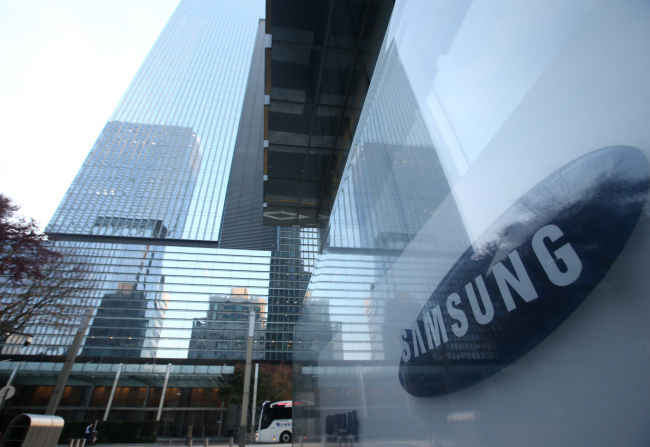Samsung
Samsung’s M&A engine sputters with heir in jail
[THE INVESTOR] With its de facto leader in jail for the past two months on presidential bribery charges, Samsung is facing a halt in investment, which had been one of the key driving forces of South Korea’s largest conglomerate.
Aggressive investments for mergers and acquisitions had been Samsung Electronics Vice Chairman Lee Jae-yong’s signature strategy to cement his leadership, since he came to the fore of the group’s management in place of his ailing father Chairman Lee Kun-hee three years ago.
In 2014, Samsung acquired video app developer Selby, air conditioner firm Quietside, mobile cloud solution provider PrinterOn, Internet of Things platform developer SmartThings and solid-state drive software maker Proximal Data.
In 2015, Samsung continued buying overseas information technology and mobile solution firms, including US mobile payment firm LoopPay, Brazil’s printer service company Simpress and Utah-based digital billboard maker Yesco Electronics.
Last year, the Korean tech titan purchased cloud service provider Joyent, online advertising technology startup AdGear, US premium home appliance brand Dacor and artificial intelligence platform developer VIV Labs. The company also invested 510 billion won ($449 million) in Chinese electric vehicle maker BYD.
The Samsung heir’s M&A investment peaked last November with a mega deal worth 9 trillion won to acquire US car infotainment system provider Harman.
 |
“Samsung is expected to execute planned investments in facilities, but new M&A investments are unlikely to be made for a while in the absence of the vice chairman,” said Park Ju-gun, head of market researcher CEO Score.
In the M&A market, companies need both short-term and long-term plans, according to Park. “The group would have set a mid- and long-term plan for its future growth and would have looked for possible candidates for about three years,” he said. “But it has no chief to make a final decision. Samsung might have considered buying Toshiba’s chipmaking unit if otherwise.”
Samsung Electronics, the biggest among 16 affiliates, is forecast to make at least 14 trillion won in the semiconductor unit this year. However, the electronics unit has said it has not finalized its annual investment plan for 2017.
Lee attended on April 13 the second round of trials held to determine whether he and other Samsung officials asked for favors from former President Park Geun-hye in exchange for money given to her longtime friend Choi Soon-sil and her family. He has lost his board membership in Exor, the holding company of Fiat Chrysler Automobiles.
On April 5, Exor Chairman John Elkann thanked Lee and other board members whose membership had recently come to an end, without elaborating on why their positions were not renewed.
Meanwhile, the very last round of Samsung’s recruitment examination was held April 16.
Job seekers, including university graduates, took the Global Samsung Aptitude Test at some 10 locations in Seoul.
“We customarily do not disclose the number of applicants,” said a spokeswoman at Samsung Electronics.
On Feb. 28, the day the Samsung heir was indicted by the prosecution, Samsung disbanded its control tower, the future strategy office, and scrapped all group-level operations.
With the announcement, Samsung said it will run the recruitment system for the last time this year in order not to cause confusion among job seekers.
By Song Su-hyun/The Korea Herald (song@heraldcorp.com)








